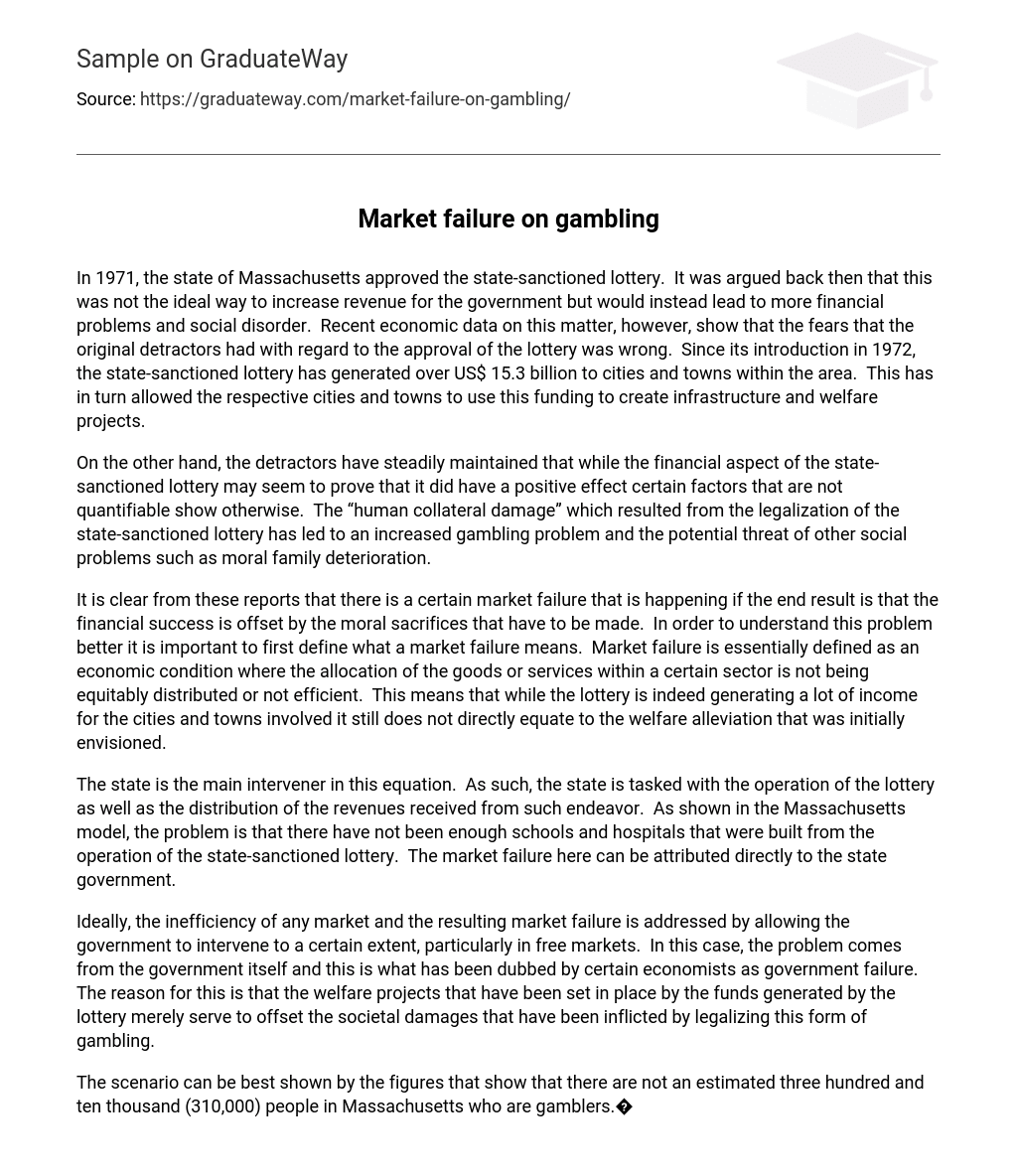In 1971, the state of Massachusetts approved the state-sanctioned lottery. It was argued back then that this was not the ideal way to increase revenue for the government but would instead lead to more financial problems and social disorder. Recent economic data on this matter, however, show that the fears that the original detractors had with regard to the approval of the lottery was wrong. Since its introduction in 1972, the state-sanctioned lottery has generated over US$ 15.3 billion to cities and towns within the area. This has in turn allowed the respective cities and towns to use this funding to create infrastructure and welfare projects.
On the other hand, the detractors have steadily maintained that while the financial aspect of the state-sanctioned lottery may seem to prove that it did have a positive effect certain factors that are not quantifiable show otherwise. The “human collateral damage” which resulted from the legalization of the state-sanctioned lottery has led to an increased gambling problem and the potential threat of other social problems such as moral family deterioration.
It is clear from these reports that there is a certain market failure that is happening if the end result is that the financial success is offset by the moral sacrifices that have to be made. In order to understand this problem better it is important to first define what a market failure means. Market failure is essentially defined as an economic condition where the allocation of the goods or services within a certain sector is not being equitably distributed or not efficient. This means that while the lottery is indeed generating a lot of income for the cities and towns involved it still does not directly equate to the welfare alleviation that was initially envisioned.
The state is the main intervener in this equation. As such, the state is tasked with the operation of the lottery as well as the distribution of the revenues received from such endeavor. As shown in the Massachusetts model, the problem is that there have not been enough schools and hospitals that were built from the operation of the state-sanctioned lottery. The market failure here can be attributed directly to the state government.
Ideally, the inefficiency of any market and the resulting market failure is addressed by allowing the government to intervene to a certain extent, particularly in free markets. In this case, the problem comes from the government itself and this is what has been dubbed by certain economists as government failure. The reason for this is that the welfare projects that have been set in place by the funds generated by the lottery merely serve to offset the societal damages that have been inflicted by legalizing this form of gambling.
The scenario can be best shown by the figures that show that there are not an estimated three hundred and ten thousand (310,000) people in Massachusetts who are gamblers. These are not merely the occasional gamblers but the serious ones. Since most of their income is lost in gambling, they take advantage of the free welfare that was generated by the revenues from the operation of the state-sanctioned lottery. It then results in a zero sum game since the added facilities merely cater to the people who were initially affected by the implementation of such policy.
It cannot be said that this effect is entirely that of market failure because the market model with the introduction of gambling was inefficient to begin with. The more specific problem in this model would be the government failure in redistributing the additional revenues that were generated from the operation of the state-sanctioned lottery. This is the main problem. While it has been suggested that there is much to learn from the model presented by Rhode Island, until then there is no choice but to remain in this zero sum game where the benefits are offset by the many problems that such legislation is causing to the system.





